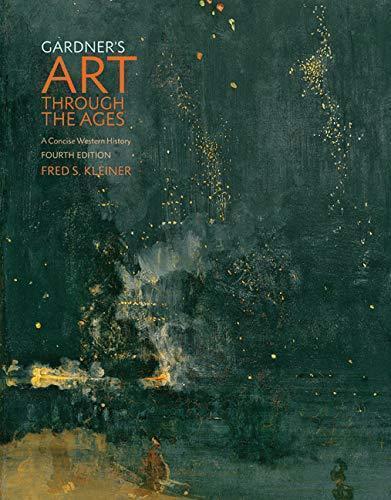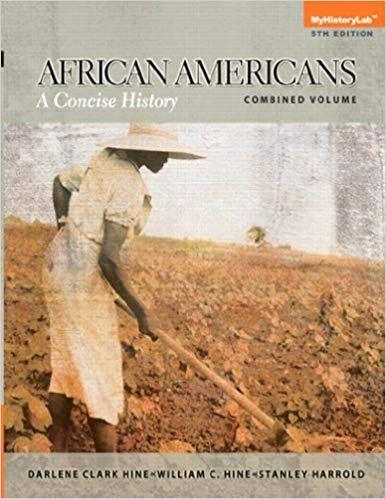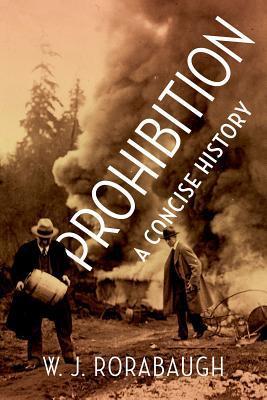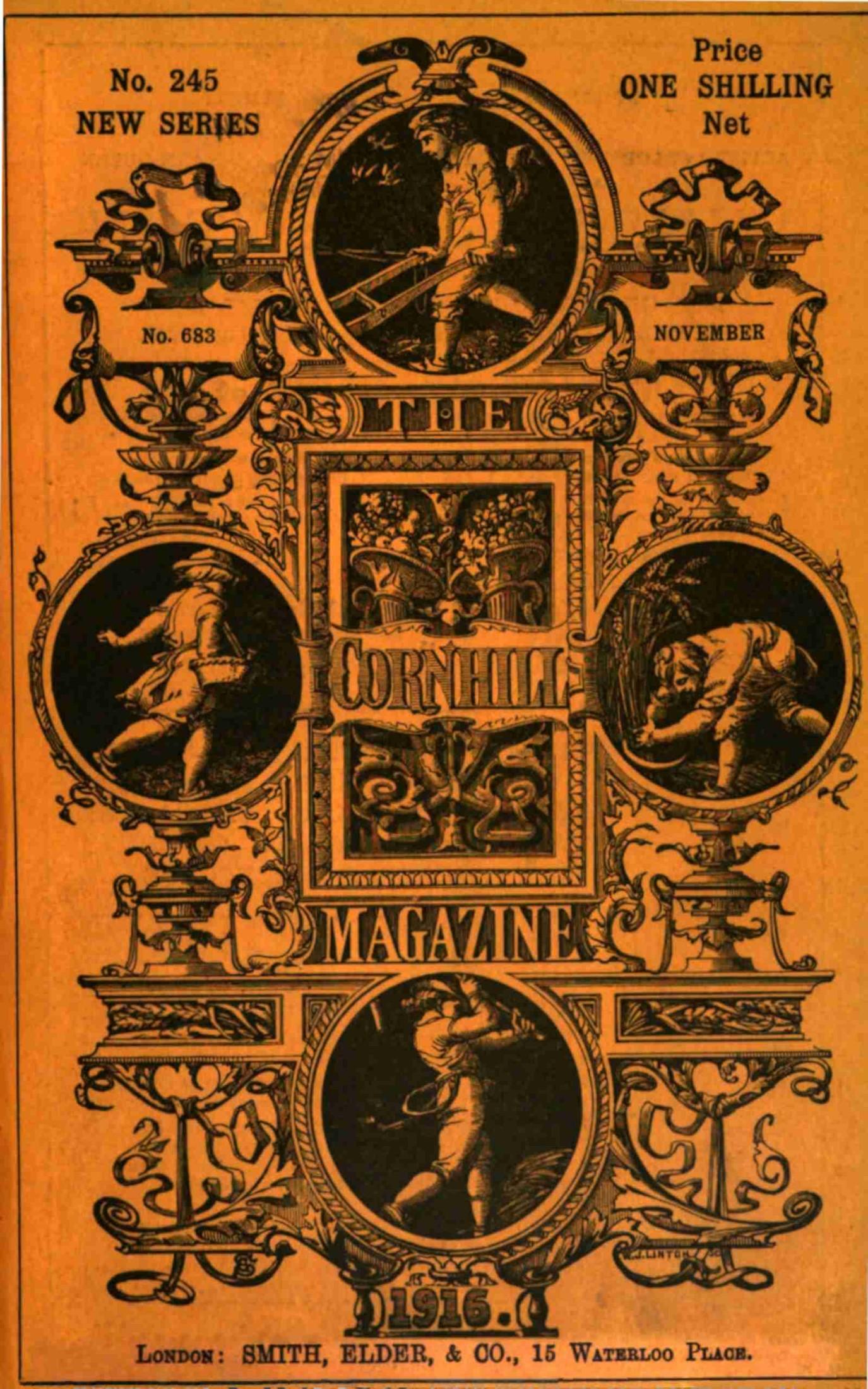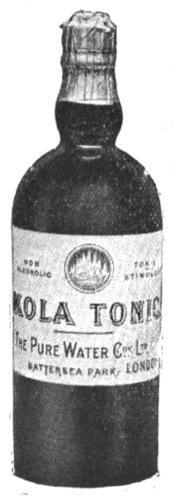FLYLEAVES;ORTALESOFAFLYING PATROL. B.E.F. 1915.
EXTRACTS FROM A PILOT’S LOG AND LETTERS HOME.
We are over the Channel at last and steering by compass for France and the War; clouds looking lovely in the sun and the engine working nicely. Incidentally we are supposed to be looking for submarines. Nothing doing. Duller than usual in fact. Wish I hadn’t said that! Of course it made the beastly engine miss. Am looking about wildly for something that will float, in case it gives up entirely and we fall into the sea. However, much tap-twiddling induced the wretched thing to resume its purr, although you would probably think that the purr was more like a chorus of very angry dogs barking. There’s a ship ‘tramping’ about a mile below me, making a horrid smoke. I wonder if they paid for best Welsh. I wish you were here with me, you’d love it. The ‘Tramp’ looks dirty and dangerous and would probably make me very ill.
We have just landed at R.F.C. headquarters and have had a much better tea than we have ever had time for in the strenuous old days in England. I thought you might be amused by my writing a letter to you in the air. The writing was wobblier than usual when we struck the gusts and the down-draughts from the clouds. I wonder what has happened to Phil. We started together, but his machine was left a long way astern and was lost sight of about half-way over. I hope he isn’t in the ditch.... Our Channel crossing took just 16 minutes— rather an improvement on the time of the Leave steamer.
Glad to say Phil is all right; he came down near the coast with a broken valve, so I went over and fixed it up with him and we flew back peacefully together....
Many thanks for your letter and the cake, especially the cake. It has been raining lately, so we have not had much flying. No Hun machines out at all, so we have been drawing all the usual coverts blank, and have got cold for nothing. One Boche had a narrow shave the other day; one of our crowd, who rejoices in the name of Mad Jack, saw him coming over and promptly hid in a cloud. Fritz sauntered along in an old L.V.G. biplane, looking on the floor, and directly he had passed, Mad Jack dived, and opened fire at the grand new yellow scarf Fritz was wearing round his neck, much to his surprise and annoyance. Having his new scarf punctured was more than brother Boche could stand, so off he legged it, heaving out maps and goggles, a few bullets from his Mausers, some smoke and much bad language. Unfortunately our gun jambed, with the oil frozen nearly solid. The two airmen weren’t exactly hot either. Rotten luck, wasn’t it?
Next day, Uncle Carl in his Albatross comes over our shanties, drops a few bombs on a hop garden near by and clears off before we could get near him. Quite convenient on the whole, as our Intelligence Officer soon discovered that murdered hops make good soup and good salad. By the way, Uncle Carl’s last bomb was a dummy, with a note addressed to us wishing ‘a happy Easter and better luck to the English aviators who have driven us from the air.’ Rather nice and sarcastic, wasn’t it? We all howled with laughter and framed the note, together with the copy of an official document which is usually known as ‘Comic Cuts.’
Everyone well and cheery. Billets very fair, but we can’t get baths.
Yesterday was Easter Day and I managed to work in an early chapel (which was rigged up in the local château), and also an ordinary Church parade later on. We had a full-blown Padre, and the Services were very welcome and well attended. Sleepy now, so farewell. By the way, the last cake wasn’t so big as the previous one. Gott strafe War Economy.
The Huns aren’t scrapping much, so yesterday three of us went on duty in three machines to a jolly little seaside watering place, where they were supposed to grow submarines. We only found bathing machines, and some quite pretty French girls who talked some quaint language. However, one of us managed to find out what it was all about, and we discovered we were asked to an enormous dinner party given in our honour at the local château. The brother of one of the ladies I had met last year at Olympia, when he was riding his show horses. It was a regular West Country dinner, as several of us had hunted regularly with the Devon and Somerset in happier days, and the rest had been to the Cathedral at Exeter. We had a gorgeous time and, leaving our machines there according to orders, came back in a car driven by the Fortescues’ late chauffeur, now a full-blown private. Funny little world, isn’t it?
(Interval for refreshments and also to tune our Wireless.)
A very quaint thing happened here the other day. A pilot was coming down in his Martinsyde Scout to land after a very strenuous time aloft. A man was on the floor lighting an experimental smokebomb by a fuse. Neither saw the other and they very nearly met. Bang went the smoke-bomb just at the moment of landing. The pilot thought he had been hit by a shell, or that his machine had suddenly blown up, and couldn’t for the life of him remember what the drill book said was the correct attitude to maintain when this sort of thing happened. The floor man fell down flat on his face, frightened out of his life, and yelled out that he had been knocked down and was rapidly expiring. Lots of us saw the whole show a hundred yards off and howled with laughter. The Court found both prisoners guilty of attempted death by misadventure, and fined them each one drink all round. That’ll learn ’em!
Lots of work in the air, and more on the ground with repairs, motor transport and so on. German Archie (the nickname for AntiAircraft Artillery) has been pretty busy, but luckily not very effective. The fellows on the ground say the sight is lovely and most artistic,
as the little white puffs burst round the machine every few seconds. These aren’t my views; if they are out for artistic effect I wish they would do it elsewhere.
Going to bed now, as we have to be up early for a combined Boche hunt—that is, if we can find any, but game is very scarce and shy, especially at present. There is a feeling that perhaps they dislike being hunted. If we can’t find any of their aeroplanes, we photograph their trenches and defences, with a little bombing byplay thrown in. This annoys them quite a lot.
(Next day.) We had been flying before breakfast. Beastly cold and very hungry, and we had drawn all the usual places blank. Brother Boche had too much sense to fly at an unearthly hour like that. We were getting rather bored with the whole show and annoyed with Archie’s attentions, when we spotted a machine four miles to the S.E. and so left our own patrol to give chase. It was a long way off and almost certainly an English machine. (It nearly always is, as the Huns know the look of our destroyers and usually avoid them assiduously, clearing off on sight.) However, we gave chase, just for luck, feeling bored; but as it got well over the German lines without getting Archied we got more interested. We had by then climbed to about 10,000 feet and had closed hardly at all, so we gave chase seriously, settling down to a steady 90 knots or more. After a few minutes we could see through glasses that she was a Hun Albatross biplane, going to their aerodrome, probably with information. She was doing about 60, so we gained, keeping above and behind her, where her pilot couldn’t very well see us, and we soon closed to about 200 yards. Then we dived suddenly with a swoop, which was a fine feeling, rather what one imagines a hawk must feel like, speed about 120 or 130 knots, and then opened fire on her starboard quarter at a range of about 50 yards. She was hit by the first burst of rapid fire, and bits of fabric and wood and metal flaked off. She dived and twisted, and her observer opened at us with an automatic pistol at about 25 yards range. We were both heeled over on one wing, and both diving and banking at the same time. It must have
looked rather jolly from the floor. The wind pressure was appalling and nearly lifted the gunner clean out of our machine. Fritz’s observer’s bullets whistled close past our heads, which was good shooting on his part, ripping up part of the plane above us in a few places, but luckily neither of us was hit. A few seconds later we knocked the pistol out of his arm, and their pilot was also hit and probably killed, as the Albatross side-slipped, fell vertically, and turned over on its back, our craft rushing over it and missing it by a very few feet. The defeated German ’plane finally nose-dived the remaining two thousand feet or so, and smashed up completely on hitting the earth. We were still diving very fast indeed, and I succeeded in turning this into a slow spiral over the spot where the wrecked enemy lay, but we could see no movement at all, only a tangled mass of twisted wires, splintered wood, and torn fabric—all that remained of what a few minutes before had been a very fine specimen of engineering skill. We then straightened out our course and strolled home on a regular jack-snipe’s plan of flying, to avoid the guns, machine guns and rifles, which the Boches turned on to us from the floor as soon as there was no chance of their hitting their own machine. They loosed off quite a jolly Morning Hate at us from the trenches too, but though we were holed over thirty times, they didn’t do any damage that mattered. We got back to our lines and eased up to cool the engine, and then climbed up to 9500 feet to see if we could hunt another Hun. However, nothing doing, so we returned home just in time, for our petrol was getting low and our kind messmates had eaten half our breakfast, as we were the last in. Otherwise a satisfactory time, though I would rather kill lots of ordinary Huns than their flyers, who are better fellows on the whole than the rest; but we can have no soft feelings now, after the Huns’ brutal performances. When they catch us, if they catch us alive, we have no hope at all for our future comfort.
Very tiresome; these fellows are the limit! I was just off to have a nice hot bath, when a rotten Hun in an Aviatik amused himself by dropping bombs, so we had to go up and chase him, but he bolted too fast, and got too low over his machine guns on the floor, for us
to have a chance of closing right up. However, we fired at him and frightened him horribly, judging by his behaviour, and probably hit him hard, though we didn’t smash him entirely. I suddenly remembered it was tea-time and so we went back quick. The getting back past the guns is the worst part of it. Incidentally the observer saw some Hun movements, which he insisted on watching closely. I think he composed an essay or two as well, or perhaps it was a sonnet. The G.O.C. seemed very pleased with it, which was much more than I was, as we got Archied of course and hit in several places, early in the performance. Beastly nuisance getting back, as part of the propeller was broken off by a bit of shell, ditto the wings, and chunks were taken out of our woodwork. The vibration was horrid and we expected it would smash up the machine before we got home. However, we were only sea-sick. We eventually landed by flares about dark. A tiresome day, as I wanted the bath and the opportunity of refilling the mess cellar. However, Jack did it all for me, and he says it was quite nice. I dislike Jack now!
Thanks very much for the papers. We get the Times and some others, twenty-four hours late, and also a daily official news, locally known as ‘Comic Cuts’ or ‘Saucy Sidelights on Soldiers’ Secrets.’
We were all much amused this morning by watching Jumbo photographing the Huns’ lines in a gale of wind which blew all the Archies adrift, the only trouble being that Jumbo was so busy with his machine that he nearly forgot to come home, even when the photographer had used up all his plates.
The may is out in blossom and the whole country is nice and green, bar the mess which the fighting makes. Yesterday we went to the Asylum, where British officers get hot baths twice a week; and very welcome they are too. The Asylum has been made into a sort of Bath Club, and one meets one’s pals there, other than the lunatics, to whom we owe a debt of gratitude for giving up washing protem.
Tom lent me a horse and I rode over to see his brother, who has been in the trenches some months now and was having a week’s rest. But when I was there his crowd was suddenly warned for duty again, to put right a mistake on the part of some of our Allies, against whom the Huns had been using stinks,—a low game. Charlie was very fit and is the only surviving original officer of his company.
I have just been inoculated with the Tetanus stuff, as I got a finger busted up. Leastwise the Pill-man says that’s why, but I think he is only being Frightful. I had two shell-hits in my wing yesterday, which cost H.M. Government about 2s. 3d. each to mend, but the Boches fired over £100 worth at us, so we are up on that deal. I think I’ll go and worry the Adjutant and see if I can’t get a little commission, or an invitation to dinner at the Headquarters mess.
Archie has got a new gun which is amusing him like a new toy. I hope he will never learn to use it properly, as it is a big one, and the black smoke of its projectiles smells horrid, and is neither ‘grateful nor comforting’ like the cocoa you sent me. The Hun stink-gases are beastly things, but at present fairly useful. A dirty trick, but not a bad one if you have no morals. Sorry I can’t give you any news, as we hear very little and are not allowed to talk of what we see for ourselves. Most of what we read in the papers, and about which we have any knowledge, is wrong, so we’re all in the same boat.
Poor Jumbo has had bad luck. He was by way of going to pay Germany a visit, just to encourage them a bit with a bomb or two, but his beastly engine has just broken its heart, and his too, poor chap, though with any luck he will be able to go to-morrow; meanwhile he is not fit to talk to. A strenuous day for all of us working hard on the floor; rather like a hot day at home in September, when there are no partridges, but instead a great longing for drinks, with none available. We hope to get on the road, or rather in the air, again by to-morrow. One of our fellows nearly, oh! so nearly, got Fritz the other day. Both machines were badly hit by each other’s bullets, the Hun legging it as hard as he could, with our little machine yapping away at its tail, when our gun stuck with a
bad cartridge, and Fritz got away wounded but not knocked out. We all hate leaving game of any sort wounded ‘out on the hill,’ but we should have got Fritz if we had had a keeper and a good dog. Zeps are poor, shy, lonely creatures and also scarce, and I am afraid that the chance of a shot at these night bugs is very remote. In a way this is quite satisfactory, as it is part of our job to sweep the air clean and neat, and to prevent the Boches from flying over and getting information. We do this quite effectively without ever seeing a Zep or an aeroplane for several days together, as they daren’t come near us in daylight, in the ordinary course of events. Zeps are a poor sort of practical joke in rather bad taste.
Two or three days ago we were suddenly sent for, just as we were beginning dinner, to chase Zeps, which were reported a long way to the North, going to England, as indeed they did. It was nearly dark and they would not let us go. Our flight was first on the ground out of the tents, and had loaded up and tested engines before orders came to stand by, which was pretty quick work. We were not allowed up, of course, without orders from the General or Colonel or somebody. However, we agreed to sleep on the floor under our wings, in case we were allowed to start at dawn. Eventually we did get leave, and two of us went off within a minute and kept station. We went northwards to the sea towards N⸺ and then out to sea a few miles, to dodge the coastwise ‘Archies,’ which annoyed them. They fired a lot, but all short, as we guessed their range correctly and kept out of it. Then we altered course north-easterly, and went up the coast past O⸺. More annoyance to the Huns, who woke up slowly; but we couldn’t see the Zeps. I expect the wind, which was very weak then, had let them get home before we could see them. Better luck next time. So we came back via the German lines, to look for a chance Hun early-birding.
We had a day off serious work this week, and went and dropped a jolly little assortment of comic bombs on some German massed troops, trains and transport behind their lines, about the time of their morning lager. Quite useful and very Frightful. We heard later
that we had done much damage and had delayed a concentration considerably. They got very angry indeed and fired heaps of shells, several hundreds of pounds worth, and did no harm bar a few hits on our wings, which were mended in an hour or so by our mechanics, while we were having lunch. Rather a lark.
Here is a gap in the letter, during which I have had my hair cut by one of our chauffeurs. You’d laugh if you saw it now. It was done in a farmyard where we live and have our being, and was watched by a dirty crowd of kids of all sorts and sizes from two to fourteen years. They chanted a chorus during the performance of ‘Cigarette and souvenir.’ We couldn’t even get rid of them when we turned the farmyard dog on to them. However, they were terrified when we threatened them with some pigs that we keep in the yard against the day when our rations do not arrive. Our farm is fairly close to the battle and we hear it all when an entertainment is in progress, though it never wakes us now. Well, after the hair was cropped, we had THE BATH—just like that—made out of canvas and bits of wood, the water being heated in petrol cans cut in half. Delicious!!
Suddenly, a frightful noise! In the middle of having a wash, the peaceful farmyard is invaded by a lot of steaming war-horses, and we dash down in time to welcome the headquarters and a squadron of the Blues. Very glad to see them; very nice too being among horses once more. They had just come back from the battle and were very hungry. We gave them dinner, to the great consternation of our limited staff and the good house-wife of the farm. For my sins I was responsible, as I was mess-president of our little flying crowd of six or seven, but, all the same, fifteen of us sat down to an enormous meal in half an hour. We had haggis, beef and onions, porridge and sardines, potatoes and almond icing and brandy cherries. The table for dinner grew rapidly out of a door and a few packing cases and tins, and light for the feast was provided by the head lamps of one of the motor transport cars. So now you see the advantage of this life is, that although all these officers, and 160 men besides, rolled up, the house was not overcrowded—we merely
got more straw and ejected the rats, and the newcomers slept alongside of us. By the way, I found that the cavalry snore was much worse than the article supplied by the Flying Corps.
We all try to be as comfortable as we can, and are lucky in having an ex-tailor, who is now a corporal mechanic—promoted, I really believe, for his skill in sewing odd bits of sacking and cloth produced from nowhere at all, on to bits of broken under-carriages and so forth, and making them into armchairs and sofas that would not disgrace the Ritz.
The other day, when some of us were foraging in a town not very far from a quaint spot called Wipers, the Huns had mistaken the time of their Evening Hate, and started by blowing a house into the road on both sides of our car. These Jack Johnsons are sometimes rather a bore—our party had to wait for the shop people to emerge from their cellars, before we could buy our dinner, and then the third shell came and knocked the opposite house down. However, we had the goods first, so it didn’t much matter. The driver of the car burnt his hand, picking a hot bit of shell out of the car’s way, at a spot where another projectile had pitched and burst, fifty yards ahead of us, and we saw one of the funniest sights in the war namely, a terrified Belgian civilian running for all he was worth, and taking a complete toss into the shell hole. We picked him up in the car, and his only thanks was a bitter complaint at the jolty way in which the car ran over his own pavé.
On the way home, we saw one of our Avros hit while observing our heavy gun-fire. It was a horrid sight, as an Archie shell hit the engine full toss. Luckily, the pilot was able to come down safely, but unfortunately it was in the German lines and he was captured. He was at Eton with me, and we were very glad to hear that both he and his observer were practically unhurt;—rotten luck, was it not? But it is all part of our show and what we all expect more or less. To make up for it, next day we got a brace of their machines by a fair stalk and a fair fight in the air, and not by these horrible Archies.
Part of our job is to read the men’s letters and censor them: our men are extraordinarily good at their work and I never wish for any better, but, taken all round, their letter-writing is not very original. This is not perhaps to be wondered at, as they are not allowed to give any news of the war, and they of course know that everything they write is to be censored. About the only topics that are discussed at all are the two most primitive ones, consisting chiefly of requests for food and raiment, and the sending of loves and kisses, the more indiscriminate the better. One hero wrote four identical letters to four different girls. One’s own time for letter-writing is limited, and this effusion has taken parts of three whole days to write. It is done in the intervals of flying; testing bombs and detonators and other fireworks, with which we try to enliven things occasionally; seeing after guns, engines and machines; avoiding Staff officers; trying to talk French to Belgian N.C.O.s who are lent to us with their men for making improvements to our aerodrome; and other work, such as drawing maps to satisfy the insatiable curiosity of the G.O.C., and devising means to appease the voracity of the fellow members of one’s mess.
Now I am sitting on the ground under a sort of tent, where bits of my engine are being improved by my expert mechanic, and I am writing on a tin of castor-oil. My finger is still bandaged up, so the pencil is not very easy to work. After yesterday’s fine summer-day, of course it is foggy and cold, raining and drizzling, so no one can fly, as nothing can be seen; and there is a peaceful feel and a busy hum of machine tools in camp.
On the last foggy day that we were up, we saw something suddenly loom out of the fog, and, thinking it might be a Hun machine, swerved towards it, but only for a second; luckily we swerved off again just in time to miss the cock on top of the steeple of a well-known church on a hill by a few feet—very unpleasant!— the ground being invisible at the time. One evening, on the way out for a raid, I came across a large eagle, flying at about fifteen hundred feet. The surprise was mutual. It was the first time in my life that I saw one of these fine birds completely lose its head, and in
an attempt to avoid what it probably thought was a super-eagle, it warped its wings the wrong way and actually side-slipped like a badly flown aeroplane, falling—headlong—a few hundred feet. The last we saw of it, it had recovered, and was flying rapidly away in the opposite direction.
Yesterday my observer and I had an extraordinary experience when chasing an Albatross biplane. While behind his own lines the Boche was some 12,000 feet up, and when we first saw him our machine was some 2000 feet lower. The German tried to get away and dive home. There was no chance of catching him at the time, so we turned away and went and hid in a big cloud, in the hope that the German would come back to continue his work in our absence. This of course is quite an ordinary manœuvre and usually works. Once inside the cloud, however, trouble began, as it rapidly developed into the worst type of thunderstorm cloud, in which the air currents are very rapid and revolve in a most disconcerting manner. It was also very wet and cold, and quite dark. This made flying extraordinarily difficult, and after a short time we had not the faintest idea where we were or whither we were going. Things started falling about inside the nacelle, and it was soon quite obvious that the machine was flying or falling on anything but a level keel. Finding my automatic pistol trickling between my legs, I turned my eyes inside the machine and anxiously watched the instruments, which I was horrified to see were behaving very oddly; for instance, the compass was gyrating madly, like a puppy chasing its own tail; the aneroid-needle, which was supposed to show our height above ground, was quivering with the rapid variations of atmospheric pressure, but yet enabled me to grasp the alarming fact that the earth was approaching at an extremely rapid rate. The speed indicator, which in this particular aeroplane consisted of a column of red liquid actuated by pipes, connected with a special type of nozzle fixed on one of the struts of the machine, amused itself by gurgling up and down between thirty and a hundred miles an hour; and the red liquid added injury to insult by spilling itself over my new breeches. Besides this, the rudder, the elevators and the balancing
ailerons sometimes took effect and sometimes did not; all of which added to the terror of the approaching flashes of lightning, the horrible feeling of being utterly unable to control the machine, which was by this time careering about in the noise and darkness like a frightened horse.
The German aeroplane, too, was known to be about, and there might well have been an awful collision, without a second’s warning, in the middle of a thunderstorm cloud.
Suddenly the observer looked round with a grin and pointed to a light patch in the darkness; this rapidly cleared, and, as the visibility increased, I recognised one of the canals. It was not underneath me, as one might expect; it was right out, beyond one wing-tip. The machine, therefore, was obviously falling in a quick spiral towards the canal.
The worst of the vortex having been safely passed, the damp of the cloud changed into sleet, which froze on the machine and on our faces and goggles; so that in addition to attending to the machine and gun, both of us unfortunate occupants had to be continually wiping our glasses. Our clothes, too, were wet through, outside from the cloud, and inside as the result of the very violent exercise taken in hanging on to the bucking aeroplane and in controlling it. Never have I worked so hard for mere existence, and never have I had a more unpleasant time.
But all was now comparatively plain sailing, and once the machine was got under control, everything was more or less comfortable again. The machine was actually in the cloud for about a quarter of an hour, and had flown some ten or twelve miles and had dropped 5000 or 6000 feet. To add to the entertainment, the storm had burst during the process, and the thunder and lightning were studied at close range. Man-made shells are pretty beastly and are apt to kill if they hit one, or go bang near enough, but they aren’t nearly so frightening as the Almighty’s automatic display, if you happen to be on the stage. The enemy did open a pretty hot fire on the machine when it emerged, but we could not really be bothered on that
occasion to take any notice of it. A further search was made for the German machine, but no trace of it could be found anywhere in the sky, so we supposed that the fright it got was enough for it and that it had gone home for good, in which it showed its wisdom.
Hot weather now with a strong north-easterly gale—we can just fly against it and that is about all. Some machines can hardly do that and therefore make an easier target for Archibald and his big brother the Crump from Krupps.
I am sending you back a bit of shell which broke a rib in one of the wings and then stuck in another. This is rather unusual, so perhaps you may care to keep it. It may interest you to know that we were flying at a height well over 10,000 feet—a pretty good shot, was it not? Luckily it didn’t do any damage that mattered.
We have recently had some very interesting and exciting work to do. We had to come down to the low altitude of about 5000 feet to reconnoitre a small piece of country very carefully, for a big longrange German siege gun, that had been annoying some of our troops well behind the lines. We took several photographs and searched the country minutely with our field-glasses, and eventually found four or five places, any one of which might quite possibly provide shelter and concealment for this big German piece.
The photographs having been developed, the number of possible places was somewhat reduced, and we then went up again and searched for the gun in the marked spots and took more photographs. Of course the German gunners were much too clever to loose off their piece when we were searching; the flash of discharge would have given away their position at once. For three days we searched and photographed, up and down, over a few square miles, using up several dozen of the best plates procurable, with a camera specially made for the work. Eventually we proved the existence of a small light railway—almost a toy—along which trucks, containing one shell only, were pushed by hand. This railway, being
connected to one of the Belgian State Railways in German hands, provided the necessities of life and ammunition for the daily Hate of the gun. The blast of the gun had also destroyed and damaged some small trees and bushes on each side of the line of fire, and this gave us a further clue. The gun itself had been mounted on one of the famous concrete foundations, inside a small building which was part of an innocent-looking farm. It was completely hidden from view, and fired out through the big double doors of the barn. Having at last solved the problem of the position of this gun, it was arranged to destroy it next day. One of our own heavy guns was brought up within range and concealed behind a hill during the night. The concealment was so perfect that when we went up next day, we were at first bitterly disappointed, because we thought that our gun had failed to arrive; however, a welcome signal from the ground informed us that it was ready to perform its share of the entertainment. The gunners had been previously shown the position of the farm, with the German gun inside it, on the map, but they could not see it and had to fire entirely by calculations. The first shot went a few hundred yards short; the second a hundred yards over it; the third a little bit to the right; the fourth and fifth demolished the farm, with our latest form of high-explosive shell; the sixth and seventh also went straight in and completed the destruction of the gun and its ammunition supply, which was stored quite close, there being nothing left except a large volume of thick black smoke. The explosions were terrific and were audible for miles around.
An aeroplane also dropped an assortment of high-explosive and incendiary bombs, and nothing could have lived in the inferno, which half an hour previously had apparently been a harmless Belgian farm. We came back and took a couple of photographs, when the smoke and dirt had drifted away with the wind. It is a curious commentary on the War, that while the opposing infantry were fighting at about fifty yards range, the German gunners should have been shooting from a position of comparative quiet, five miles behind theirinfantry, at an undefended town some ten miles behind our infantry; and that our gun should have been shooting from
another quiet position well behind our lines at the German gun, none of the gunners concerned on either side having ever seen their target at all; and it is here that the supremacy of the air told heavily. A German Aviatik aeroplane, fitted with wireless, had come over and had attempted to direct the fire of the German gun; it did not have time to complete its work before it was attacked by two of our swift fighting machines and brought down, both its occupants being wounded and the machine captured; consequently the damage done by this extraordinarily powerful weapon was not at all in proportion to the wonderful care and forethought bestowed on the manufacture and positioning of the piece. Although no German machine attacked ours with any success during the process of locating the gun and its final destruction, yet they had surrounded the spot with powerful anti-aircraft guns, which fired high-explosive shrapnel; there were also one or two high-angle Howitzers of approximately 8 inch bore, firing an enormous high-explosive shell, which burst with a tremendous rush of black smoke, and disturbed the air for a considerable area, to such an extent that it made flying always difficult and sometimes extremely dangerous, apart from the holes which the fragments of shell themselves make in one’s pet aeroplane.
On one of these occasions one of these big shells exploded so close that it capsized the machine, and the pilot was thrown out of his seat and found himself hanging on with one hand and one foot. The observer also had an extremely narrow escape from being thrown out, some of the loose gear in the machine falling down vertically for a mile and a half and, we hope, hitting some German on the head. The pilot managed to scramble back into his seat and get the machine to resume a more dignified position. It had, however, fallen about 600 or 800 feet, and both the occupants were amused and greatly relieved to see the next batch of shells burst about this height above their heads. The Germans of course knew, or guessed, what we were after and were much annoyed with our persistency. Over a hundred shells of various sorts were counted, bursting in the air, within two minutes, by an onlooker on the
ground, and it is not surprising that the machine was frequently hit; but we were lucky enough to manage to get back to our own side of the trenches when we were sufficiently damaged to be forced to come down.
I never seem to get accustomed to being shelled when they get close, and I think it is beastly. It is rather different being in a trench, when the whole trench is being shelled, and where one can usually get some cover, but in the air it is an offensively personal ‘Hate’ on the part of the Strafers. One’s aeroplane is the target of the guns, and, if low enough down, of the machine guns and rifles too; and the pilot himself is the bull’s-eye in the centre of the target.
It is bad enough for a pilot, but it must be much worse for those very gallant fellows who come up as observers and photographers, because they know that if their pilot is killed there is very little hope of their ever getting down alive themselves. I never believe those fellows who say they are not afraid. Anybody who has imagination must be frightened at times, and it has often been shown that anyone without imagination can never hope to fly at all well. However, all this makes no difference and we go up cheerily all the same, in fact I think that a Flying Corps mess is about the cheeriest place that I have ever been in. The work is extraordinarily interesting and at times very exciting, although we have our bad spells of dulness, when we have to come down after a long and tiring patrol in the bitter cold and report to our chief ‘nothing doing.’
I have given you rather a long description of one particular job of work, out of many that we are constantly doing. This sort of work is going on more or less incessantly over the whole front, while other machines are employed in reconnaissance—that is, searching for enemy movements and new enemy positions, and photographing them when found; or in directing the fire of our artillery by observing the fall of their shells, and then signalling back by wireless or other means, so that the gunners are enabled in practice to drop their shells on any spot they like about the size of a tennis court, within the entire range of their weapons.
The other work which some of us do, and which is better known to the public, consists in dropping bombs and engaging the enemy aeroplanes in the air. We nearly always come off top dog on these occasions, but of course there are, I am sorry to say, times when a machine does not come home.
I am writing this letter while my machine is being mended and the engines overhauled, after the last few strenuous days.
Some of us are members of the local ‘Frog Club.’ There are two classes of members in the Frog Club: one class shoots the frogs—not with ammunition, for it is too precious, but with catapults, homemade out of local fences, while the rubber is provided, I regret to say, at the national expense, out of ‘absorbers, shock, rubber partworn’ (as we say in our lists of spare parts) from smashed aeroplane under-carriages. It is contended that shrapnel in the form of fine gravel is the best for frogs; but the expert shot, who, when he is not flying, is a Captain in the Royal Garrison Artillery, thinks that a single bullet about the size of half a brick—or perhaps a shade less—is better. He says he gets quite close, but he has never yet hit one. He is now designing a highly elaborate telescopic sight for use with his catapult, and we encourage this industry on his part, as it keeps him away from disturbing the waters. Personally, I belong to the fishing section, and our implement consists of a rod, made of broken parts of our machine, which have been shot through and joined together in the most approved split-cane-rod fashion, while for bait we use a piece of red flannel mounted on a bent pin.
We have quite learned from the French the advantage of Frog as an article of diet, although we find it necessary to persuade our guests to eat them, by calling them quail, or similar reminiscences of a London dance at the Ritz. The demand for game has been more than the supply, so our mess cook solves the problem by catching them with, I think, a net and a bucket. He is no sportsman, but withal an excellent cook.
Another early morning; up at daybreak, looking for Huns in the air. One German up, an L.V.G. two-seater—obviously very sleepy, and even more annoyed at being turned out of his bed than we were. We met him coming up towards our lines while we were at 9000 feet. He didn’t apparently see us, so we dived 5000 feet on top of him and loosed off our machine gun. He was badly hit and his engine smashed, but we could not manage to kill the pilot, who pluckily dived his machine steadily down, with our own close behind him, over some well-concealed anti-aircraft guns.
They hit us all right, as they usually do nowadays, but not vitally; and Brother Boche was crumpled up when he landed—quite good fun, but they are too scarce and shy for one to be at all certain of a hunt on any given morning. They know our fighting machines by sight, and nearly always bolt and dive for home, unless one can catch them unbeknownst, which is not very often.
Casualties have been rather heavy in the R.F.C. lately, partly owing to their trick of leading us over their hidden anti-aircraft guns and Rocket Batteries. One Howitzer in particular has been too good a shot for some of us, so we arranged to have a morning Hate against this particular Crump and thoroughly strafed it, wrecking it absolutely with one of our Heavies.
The Boches have had at least as good as they gave, and flying seems no longer to be a popular pastime among them.
The last day or two we have been on patrol duty in a fighting machine over a given area. This consists in flying all over the shop, and protecting our machines which are doing fire control, or photo, or reconnaissance work, or other special jobs; the ‘protection’ consists partly in drawing the fire of the ‘Archies’ (i.e. the regular anti-aircraft shrapnel quick-firing guns) and ‘Crumps’ (i.e. Howitzers which fire high-explosive shells from 5 to 8-inch) and partly in keeping off Hun machines from being too inquisitive as to the doings of our aeroplanes and the movements of troops on our side of the trenches. The area one covers varies, but is often about 50 square
miles, and one’s air-speed varies from 45 to 75 miles per hour, except when diving, when the speed goes up beyond the range of the indicator, say up to 125 m.p.h. To this may be added, or subtracted from it, the part or whole of the true wind-speed— according to one’s course in relation to the wind. In windy weather this has often meant an additional 50 miles per hour, so our speed over the ground is frequently up to the standard of the police-trap at home! One sometimes covers a couple of miles on the floor in a minute or less, the height varying according to the day, etc., between about 5000 and 10,000 feet. This is fairly high up, but occasionally we have to go to 12,000 or even 15,000, though I have never had to do so yet. At these great heights we climb slowly and the engine and oneself both prefer to keep one’s level, as it is hard work for both to get up much beyond this, and it is very cold too. The anti-aircraft shells can reach us even here, though not very easily.
The chief actual result of Patrol Orders is that we are on the lookout for Huns in the air, and ‘Archies’ and ‘Crumps’ too. Whenever we see the former we go for them, not necessarily direct, but often manœuvre a lot for tactical position first.
Very often, if the weather is good, we take a few assorted bombs to drop, in case a good target appears over the Hun lines. They weigh a lot, and so we like to get rid of them as soon as possible. There is a gunner to work the guns, and he is either an officer or a specially trained mechanic, with a straight eye and no nerves.
To-day, Thursday, it has luckily been raining, so the mechanics have been patching up, trueing up the rigging and so on. A day’s rest is badly needed by the machines, and we are not averse to it, so we’ve been into P⸺ buying coal and provisions for the Mess, of which I am still doing President. A successful day in that way too! We got coal at a fair price from a man who is a very large brewer and general merchant; and in return we gave a lift in the car to his wife and daughter. They have a splendid house with a wonderful garden, and well-kept glass-houses in great quantity. The house has
only one corner chipped off by a Jack Johnson, and the garden is O.K. and quite the best I’ve seen here—lovely! They gave us—two of us went in—an excellent lunch and tea, and we brought some of them back in the car, which was also laden up with provisions and furniture.
Wisely enough, their house is deserted and they are living pro tem. in a farm near us, as refugees, though one or two live in the cellar of the P⸺ house. It is a comic world. They don’t seem to mind much, and are very cheery and kind to us flying folk. We each walked back, with a present of two bottles of wine, and the shuvver had one too! It turned out to be excellent claret.
It’s as well to be amused here if we can. One’s ‘expectation of life’ isn’t very much just now.
(Tobecontinued.)
P
RESS BUREAU: PASSED FOR PUBLICATION.


